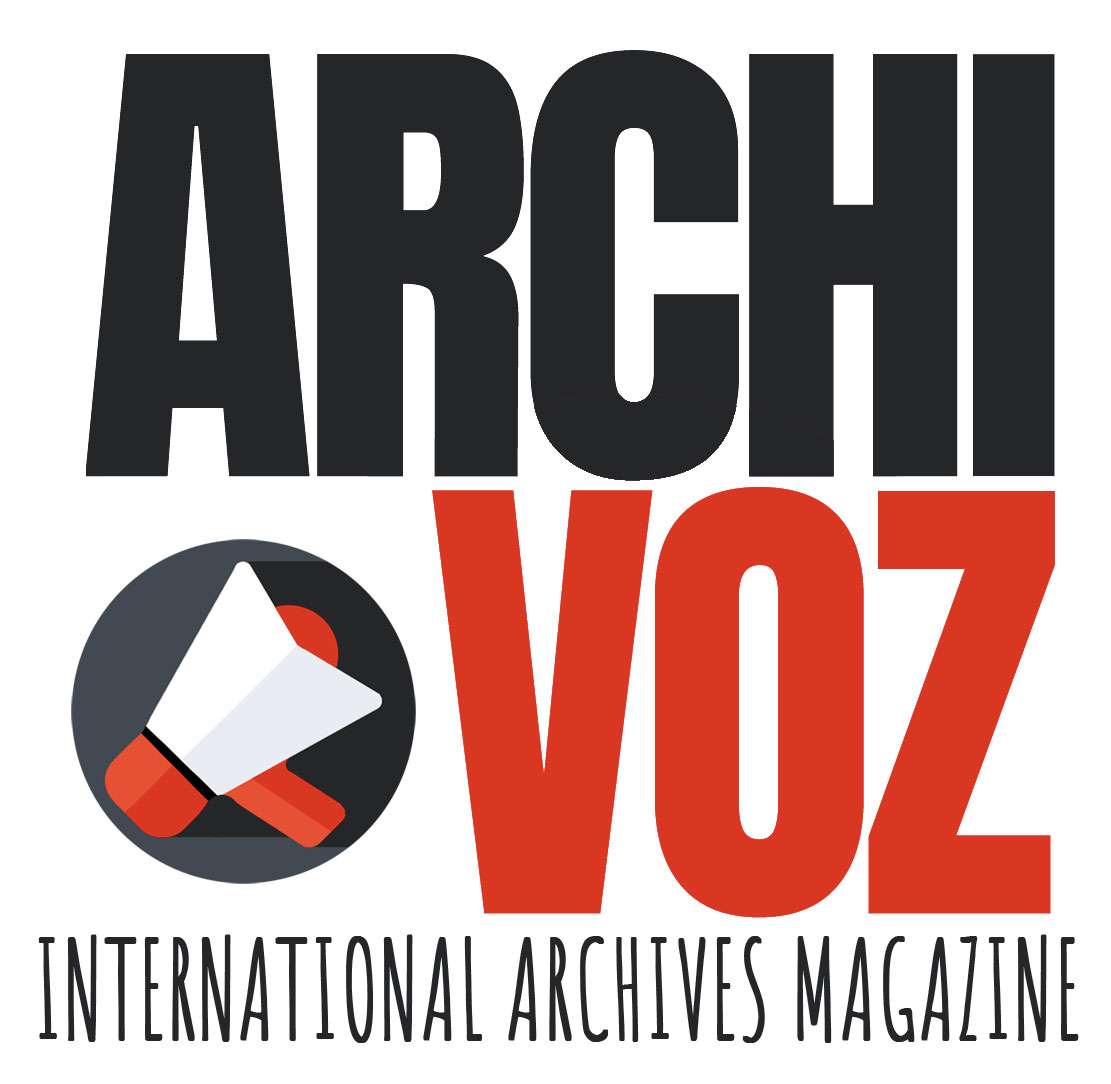Today, Lawrence Gregory gives an insight into his work at the National Institute of Newman Studies and Catholic Archives Society. He shares how he oversees the digitisation and cataloguing of Catholic records worldwide and highlights the challenges faced by people who work on preserving religious heritage.
(Archivoz) You are working as a Senior Archivist at the National Institute for Newman Studies (NINS), overseeing the digitisation and cataloguing of Catholic records worldwide. Could you explain in greater detail the work and mission of NINS and say what you are currently working on?
(Lawrence Gregory) The National Institute for Newman Studies (NINS) was conceived in 2002 by Fr Drew Morgan and Mrs Catherine Ryan of Pittsburgh, Pennsylvania, USA as a centre where scholars could access Newman and Newman-related documents and materials. The institute was conceived as a forum for exchanging ideas and discoveries about Newman’s thought and its continuing relevance.’ In 2007 the Gaillot Centre for Newman Studies was opened in Pittsburgh, containing a research library, with residential suites for scholars, and administrative offices. In 2010 NINS was affiliated with Duquesne University. In 2013, work began to digitize the handwritten archives held at the Birmingham Oratory. In 2018 we launched the Rednal Digital Collections, a custom-designed and built digital humanities system to bring the digital archive to the world. In 2021 we started expanding the scope of our work, entering into digitisation partnerships with other archives and repositories to bring their archive items onto the Digital Collections, working not just with specific Newman letters, but also the correspondences and writings of different figures with whom Newman worked and interacted, from both his Anglican days and the Oxford Movement and his Catholic days with the Archbishops and Bishops of the British hierarchy. In that first year, we bought onboard collections from the Birmingham Archdiocese, and Pusey House, Oxford. In 2022, Magdalen College, Oxford, Westminster Archdiocese, Southwark Archdiocese and the Liverpool Archdiocese. In 2023, Ushaw College, Mill Hill Missionaries, Buckfast Abbey. 2024, the Sisters of Mercy, Monastery of the Visitation, the Dominican Sisters Provence, and the Diocese of Shrewsbury. Although all these projects are digitised, each item has to be individually catalogued before it is available online, and this is ongoing work, new items come online every day. See https://digitalcollections.newmanstudies.org/. I joined NINS at the end of 2016, having previously been assistant archivist to the Diocese of Salford for fifteen years.
(Archivoz): The National Institute for Newman Studies uses Rednal Digital Collections software. Was it developed by the NINS team and is there a potential for other archives, museums, or libraries to use it as their collection software? Or maybe some heritage institutions use it already?
(L.G.) There are two teams at NINS, one side works on the theological Newman studies side, and the other on the archives and digital side. Dr Daniel Michaels and I lead the digital collections team, which includes additional contract archivists, vendors, and an entire software development group. Rednal digital collections software was developed in-house by the NINS team, combining open-source applications and bespoke code in compliance with the latest digital humanities standards for metadata, SEO, and archival best practices. The system is available as Software as a Service (SaaS), a cloud-based ecosystem, for other archives and collections to purchase from NINS. The Commission on the Franciscan Intellectual Tradition and the American Academy of Franciscan History have already become clients, with several others in our queue. See https://www.rednal.org for more information.
(Archivoz) And what researchers these digitised collections would be the most valuable for? Could they be of any interest to scholars not concerned strictly with Catholic history?
(L.G.) The archive resources we are bringing online are of interest to Newman scholars, theologians, and Catholic and social historians. There is much material which is relevant to the national story of Great Britain and further afield, there are for example letters from the first Catholic bishops in the USA describing their journeys ‘Out west’. There are letters detailing the establishment of the Catholic missions to the freed slaves after the American Civil War. We aim to make archives available to all.
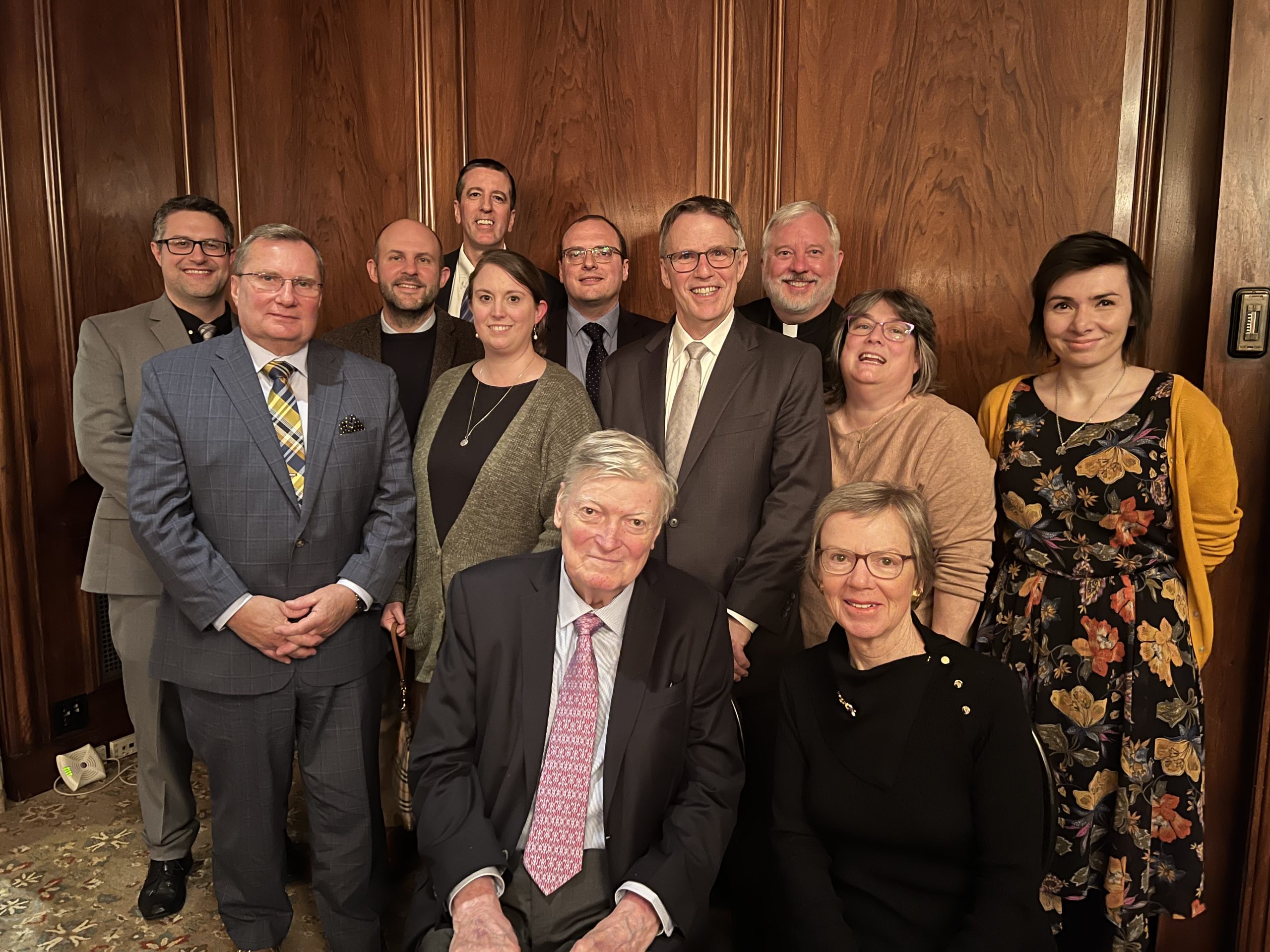
Lawrence Gregory and team at NINS, Pittsburgh
(Archivoz) You recently took over the position of Chair of the Catholic Archives Society (CAS). How long has the Society been functioning, and what are its role and mission?
In 2024 I was elected as chairman of the Catholic Archives Society, succeeding my good friend Dr Jonathan Bush. The CAS was founded in 1979 and in five years will celebrate its fiftieth anniversary. The CAS was established to provide training, guidance and networking for heritage professionals working on Catholic collections, including archivists, librarians and curators. Many of these people were untrained and were either volunteer laypeople or clergy and religious.
(Archuvoz) Finally, what do you think is the biggest challenge for the Catholic Archives nowadays, whether in the UK or worldwide?
The heritage profession has developed dramatically over the past five decades, with a rising number of young professionals taking higher qualifications in the field. Today the council of the CAS is composed almost entirely of qualified lay professionals under the age of 45. The 21st century has however brought growing challenges to the Catholic heritage world, as vocations and mass attendance dwindles, churches and religious houses are closing, funding is also becoming a problem with many parts of the church seeing heritage funding as unnecessary. We are faced with finding safe repositories for archives from religious communities that are disappearing.
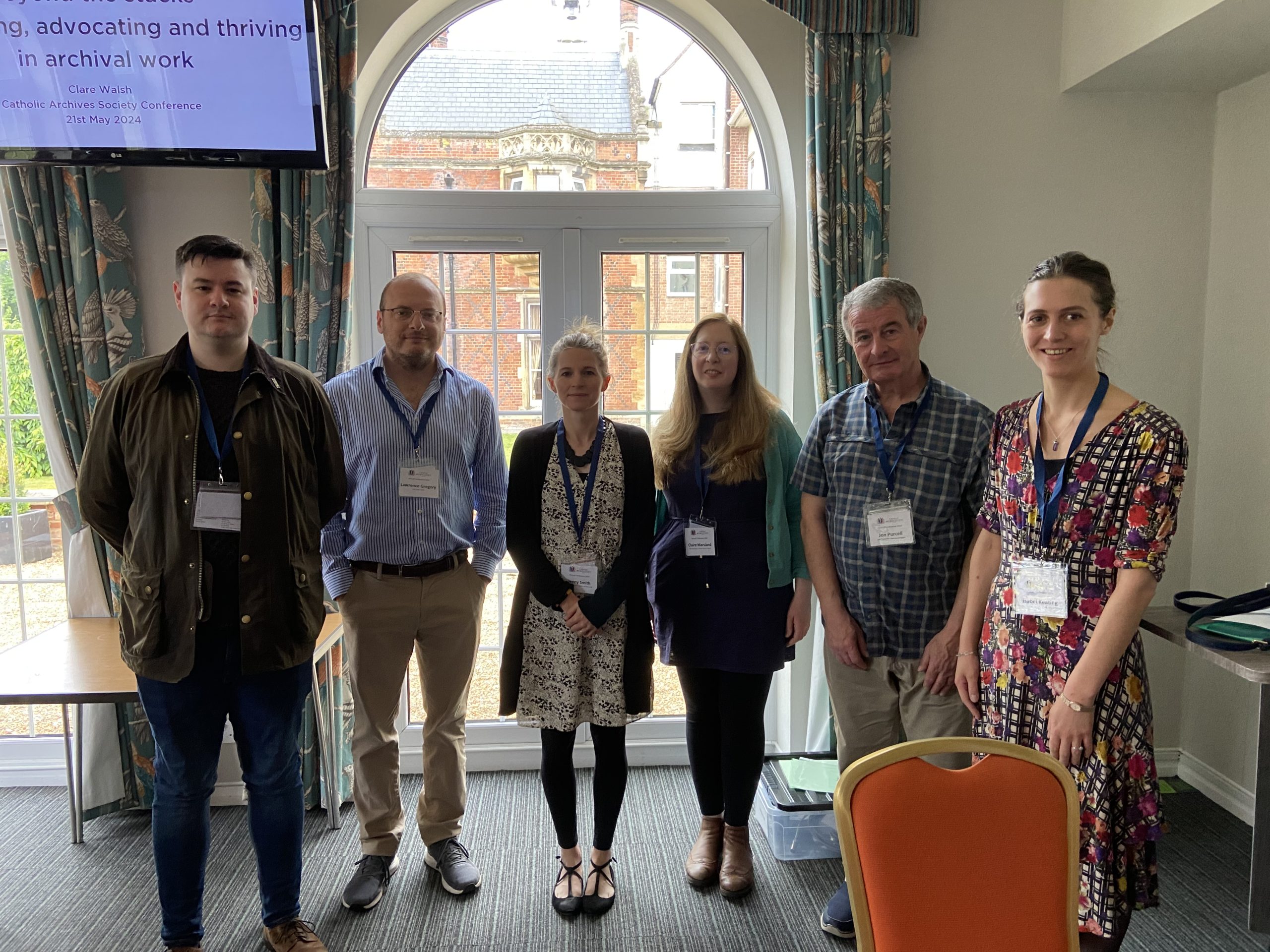
Lawrence Gregory and CAS Council Members
All images courtesy of Lawrence Gregory
Interviewee
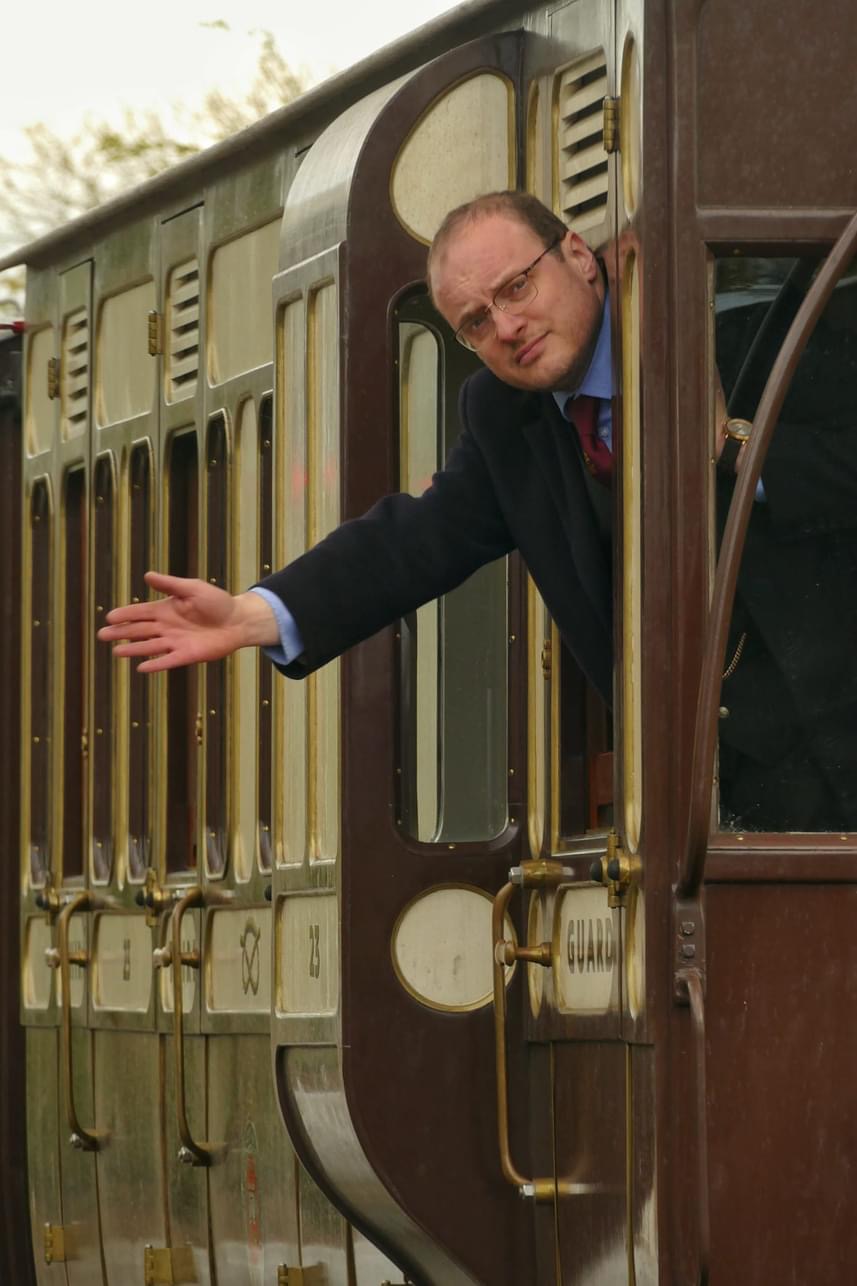
Lawrence Gregory
Senior Archivist & UK AgentSenior Archivist & UK Agent, National Institute for Newman Studies
Lawrence Gregory worked initially in business as a corporate tax records manager for the Danwood Group Ltd, which he did concurrently with his role as assistant archivist to the Diocese of Salford, where he trained under Dr David Lannon. Following the closure of the Salford Diocesan Archives in 2016 he was employed by NINS. He was accepted as a member of British Mensa in 2021, in 2023 his publication profiling the lives of the 19th century missionary clergy of Lancashire won the Frank Mullineux Local History Award 2023 and same year he was elected to an honorary Fellowship of the Royal Society of Historians in 2023.In 2024 he was given the award for Outstanding Individual Contribution to Local History Studies, by BALH and the National Archives UK. In 2024 he became a Chair of Catholic Archives Society (CAS).
In his free time he enjoys spending time with my nieces and nephews, as well as hiking, woodwork, singing in a local community choir and volunteering at his local heritage railway – The Foxfield Light Railway Society Ltd.
Interviewer
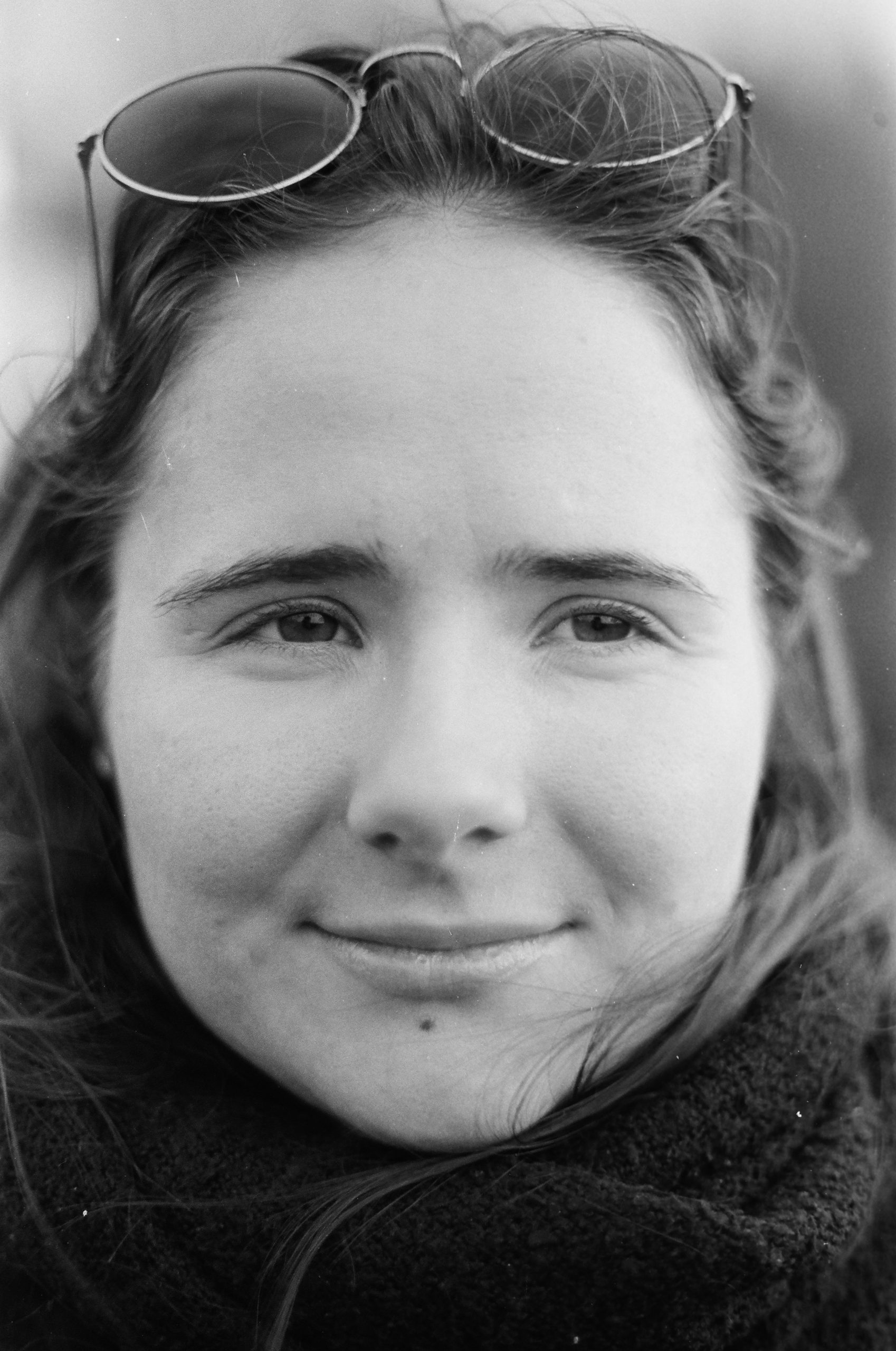
Salomea Chlebowska
Content Editor, Archivoz Magazine
Salomea is Archive Development Officer at Birmingham Botanical Gardens, where she is assessing, documenting, cataloguing, and digitising essential records and publications dating back to 1829, when the Birmingham Botanical and Horticultural Society was established. She also works as a freelance Polish, Spanish, and English translator and interpreter.
Salomea was born in Poland and moved to Lancaster where she obtained Spanish Studies, BA, and Digital Humanities, MA at Lancaster University. Her academic research focused on the cultural meeting points in Early Modern Europe, with a focus on Polish and Spanish cultural exchange. In the past, she was also researching war journalism during the civil war in El Salvador in CAMeNA archive records, transcribing Oral History interviews for Grodzka Gate in Lublin, Poland, and Spatial Narratives Lake District Holocaust Project, and also worked on cataloguing Lord Lilford of Bank Hall Collection (DDLI) in the Lancashire Archives in Preston.



